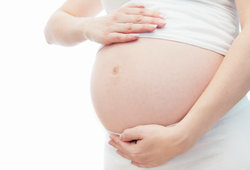Pavilion Publishing and Media Ltd
Blue Sky Offices Shoreham, 25 Cecil Pashley Way, Shoreham-by-Sea, West Sussex, BN43 5FF, UNITED KINGDOM
 Twenty areas in England are to receive a share of £40 million to develop specialist community mental health services for expectant and new mums, with the aim of reaching 30,000 more women a year by 2021, NHS England has announced.
Twenty areas in England are to receive a share of £40 million to develop specialist community mental health services for expectant and new mums, with the aim of reaching 30,000 more women a year by 2021, NHS England has announced.
The funding will see new or bigger teams in those areas providing specialist care for all new and expectant mums with severe mental illness.
It will fund new perinatal consultants, specialist nurses, occupational therapists, psychologists and nursery nurses as well as community peer support for mums, babies and families. There will also be more buddying and telephone support where mums who have had experience of similar issues help other mums in need.
A further £20 million will be allocated next year.
Perinatal community mental health services provide specialist care for women with severe mental illness such as schizophrenia or psychosis while pregnant or after birth responding quickly if they become ill. They can help to minimise risks to mum and baby by, for example, giving medication advice, providing lifestyle advice or counselling support or following an inpatient stay promoting hope and recovery.
They also see and treat women who have been identified as at high risk of developing serious illness at home and in the maternity unit during pregnancy and after delivery as well as pre-conception counselling.
NHS England is also commissioning four new mother and baby units.
New mental health standard
In addition, a new recommended standard is to be introduced that says anyone who walks through the front door of A&E or is on a hospital ward in a mental health crisis should be seen by a specialist mental health professional within an hour of being referred, and within four hours they should have been properly assessed in a skilled and compassionate way, with the correct next steps for their care planned in partnership with them.
NHS England is also for the first time inviting regional A&E Delivery Boards, which oversee urgent and emergency care locally and include partners from hospitals, councils and other local bodies, to bid for £30 million funding for expert psychiatrists and mental health nurses to provide better care for people with urgent and emergency mental health needs attending A&E and being treated on general hospital wards.
People with mental ill health are three times more likely to end up in A&E than the general population and five times more likely to be admitted to general hospital wards in an emergency. This extra funding will help general hospitals to care for them in the best way.
Simon Stevens, NHS England chief executive, said: “For most parents having a baby is one of the happiest times of your life. But for tens of thousands of new mums, this experience is sadly overshadowed by severe pregnancy-related mental health problems. Now the NHS is taking concrete action to get these mothers and families the specialist mental health support they need.
“It is also the case that many other patients with mental health crises end up using A&E services as their first port of call, so today we are kick-starting the programme to expand the 7-day availability of specialist psychiatrist and mental health staff in our major A&Es.”
One in 5 women experience depression, anxiety or in some cases psychosis during pregnancy or in the first year after childbirth and costs of perinatal mental ill health are estimated at £8.1 billion each year in the UK.
Claire Murdoch, NHS England’s national mental health director, said: “We have committed to delivering evidence-based treatments for an extra 1 million people by 2020 and it’s a significant achievement to be able to show how a substantial number of those people will be helped just 9 months after launch.
“New and expectant mums suffering perinatal mental illness and those experiencing mental health crises attending A&E, which we think could be as many as 1 in 5, are among those groups who need our help immediately. With effective, compassionate care people can have much better health outcomes and get on with their lives.”
The new funding and new standards for A&E and hospitals was welcomed by the Royal College of Psychiatrists. Dr Peter Aitken, chair of the faculty of Liaison Psychiatrists at the Royal College of Psychiatrists, said: “This is very welcome news for people using A&E and hospital services who currently find most difficulty accessing mental health expertise. Up to 50% of people in hospital have some need of mental health expertise in their general care and these new liaison psychiatry services will go some way to addressing this historic unmet need.”


